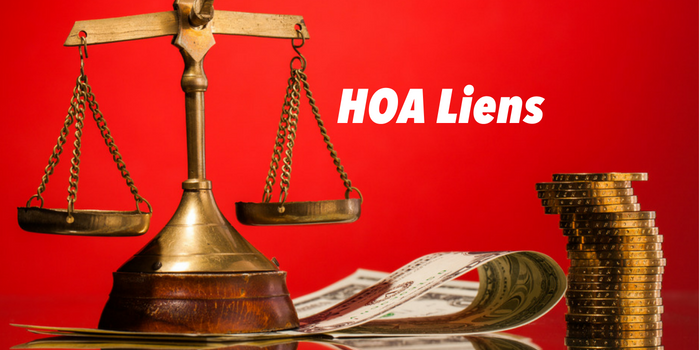“HOA Liens? What are those?” It’s a question lots of board members ask, so if you’re wondering as well then you’re not alone! In this post we’ll take you through a brief overview of HOA liens—what they are, what they impact, and how to remedy the situation as a board member.
HOA Liens Defined
A lien is a legal hold, or claim, put on a piece of property. There are several types of liens, one of which is an HOA lien. An HOA lien essentially happens as a result of a homeowner’s failure to pay dues.
State laws usually dictate certain due-process requirements on how and when an HOA can foreclose on an assessment lien. HOAs can foreclose on a home for relatively little money due and after short periods of delinquency, but laws vary by state. If you want more specifics, those rules can be found in your state’s statutes.
There are two types of foreclosure: judicial and non-judicial. Judicial foreclosure requires a judgment from a court giving permission to sell the home to satisfy the HOA lien. Some states allow non-judicial foreclosure, which is when an HOA can record a property lien and hold a public foreclosure sale on its own, without having to get a court order. After a foreclosure, the HOA is not responsible for paying the mortgage. This is because the HOA did not sign the promissory note, the borrower did. Therefore, the borrower is still responsibly for the loan repayment. After an HOA forecloses on the property, all liens are removed from the property title and the board can proceed with selling the home to fulfill the debt.
The Impact of HOA Liens
It goes without saying that HOA liens are a pain for everyone involved. Having too many homeowners with fee delinquencies resulting in liens can potentially make lenders less willing to offer mortgages or refinance properties in your community, ultimately lowering the home value of your community. Additionally, filing a lien will cost money—you’ll be spending the association’s money on potentially costly legal proceedings. Foreclosure could end up costing the association much more than the total of the back dues.
Remedies for HOA Liens
Keeping all of the above information in mind, it’s wise to take all steps necessary to avoid any problems reaching the worst-case scenario. Act quickly to collect overdue fees. The board needs to adopt a clear and firm policy on collections, and be wary of making exceptions, though a select number of circumstances may warrant one. It’s a good idea to have a schedule for delinquent payments so that homeowners know the process and be able to see that there is no room for deviation from the schedule. Be sure that all notices to the offending homeowner are clear and simple, reducing the possibility of the homeowner misunderstanding any notices.
Nobody likes the prospect of filing a lien or forcing a foreclosure on a neighbor’s home. However, it may occasionally be necessary because one homeowner who is consistently not paying their fees affects the rest of the community by cutting into the association’s budget. Be wary of how you handle liens and foreclosures within your community. If you must discuss them in any public capacity, don’t use the specific address or the owner’s name. Be sure that you do not publicly embarrass the debtor, as that could possibly backfire on the association. Always consult with your association’s legal team before pursuing a lien against a homeowner, as there may be a less costly, less annoying option.







